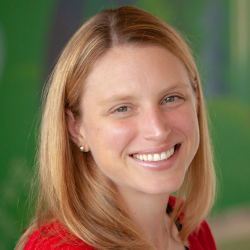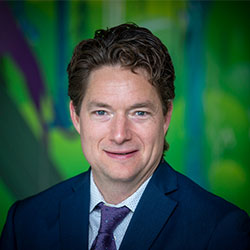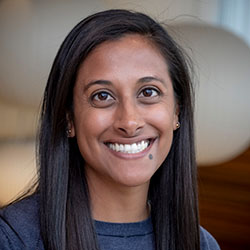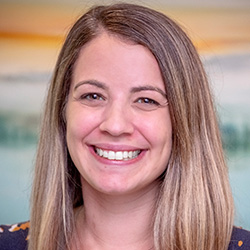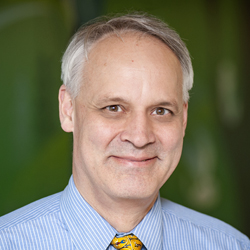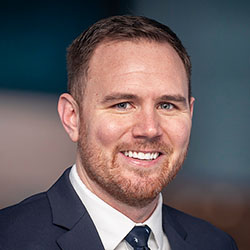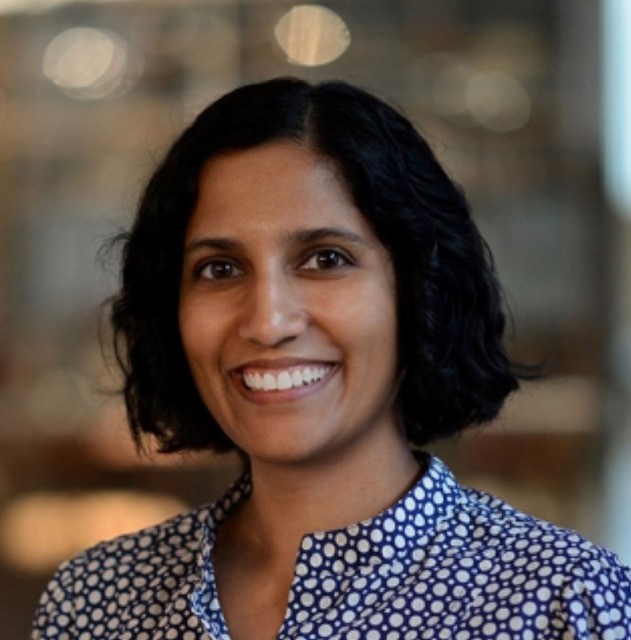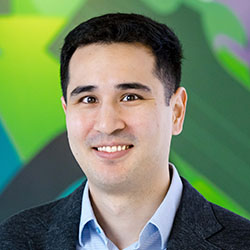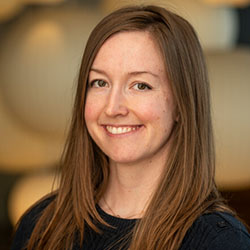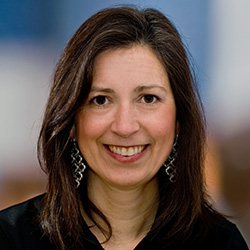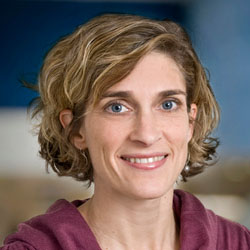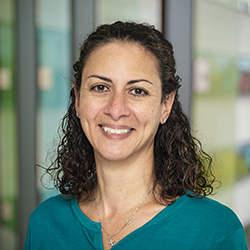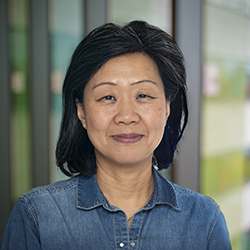Solid Tumor Program
Contact the Solid Tumor Program
What are solid tumors?
Solid tumors are abnormal lumps of tissue. They may be benign (not cancer) or malignant (cancer).
Solid tumors are not common in children. But when they happen, they can affect any area of the body. For example:
- Cancerous tumors in bone and soft tissue are called sarcomas. Examples are osteosarcoma, Ewing sarcoma and rhabdomyosarcoma.
- Cancer may start in tissues of internal organs such as the kidney (including Wilms tumor), liver or thyroid.
- Neuroblastoma starts in young nerve cells and can cause tumors in many parts of the body.
- Retinoblastoma starts in the lining inside the back of the eye (retina).
- Germ cell tumors grow from cells that make sperm and eggs. These tumors most often affect the testicles or ovaries however germ cell tumors can occur anywhere in the body.
What's special about Seattle Children's Solid Tumors Program?
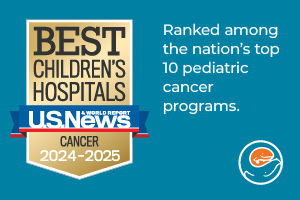 Seattle Children's provides the best solid tumor care for children, teens and young adults in the Pacific Northwest. We bring together a team of experts in diagnosis and treatment, whether your tumor is malignant or benign. We provide treatment options that many centers do not offer. These include complex surgeries, clinical trials and proton therapy.
Seattle Children's provides the best solid tumor care for children, teens and young adults in the Pacific Northwest. We bring together a team of experts in diagnosis and treatment, whether your tumor is malignant or benign. We provide treatment options that many centers do not offer. These include complex surgeries, clinical trials and proton therapy.
From first visit to follow-up, we will work with you to provide seamless care. We are experienced caring for patients up to age 21 with the hardest-to-treat tumors. Our Adolescent and Young Adult Cancer Program partners with teens and young adults to meet their needs. Our goal is to give every patient the best chance of a long and healthy life.
The most advanced treatment options
- We offer state-of-the-art treatments such as , , , complex surgeries, radiation therapies, and novel therapies offered in research studies.
- Some children and young adults with solid tumors need very high doses of chemotherapy medicines and a to replace the body's systems for making blood and immune cells. Our team is with your family each step of the way — preparing for transplant, doing the transplant here at Seattle Children’s and care during recovery. We work closely with Fred Hutch, one of the largest transplant centers in the world.
- Seattle Children's is the only hospital in the Pacific Northwest and one of the few centers in the U.S. that offer I-131-MIBG therapy for children.
- For those who need radiation therapy, proton therapy may be an option. We offer this treatment at the only proton therapy center in the Northwest.
- Seattle Children’s was one of the first hospitals in the country to treat retinoblastoma with high-dose chemotherapy delivered directly into the blood vessel that feeds the tumor (intra-arterial chemotherapy).
The pediatric experts you need for the best outcome
- Our team is among the most experienced in the nation at treating solid tumors in children and young adults. Our providers are known worldwide for solid tumor care and surgery. We treat the most complex cancer patients.
- We are the only children’s hospital in our region accredited by the Commission on Cancer (CoC) of the American College of Surgeons (ACS). The ACS also has verified Seattle Children’s as a Level I Children’s Surgery Center. Read more.
- You will benefit from the work of physician-scientists at Fred Hutchinson Cancer Center and UW Medicine, as well as at Seattle Children’s. The National Cancer Institute has named our partnership a comprehensive cancer center.
- Our doctors strive to improve cure rates while reducing the harsh effects from traditional treatments. We offer early-phase clinical trials and have one of the nation’s largest pipelines of CAR T-cell immunotherapy trials for children and young adults.
Treatment tailored to your unique needs
- An accurate diagnosis is key to effective treatment. For many tumor types, we use tests like and (NGS). These tests help us find what is different about each person’s cancer and identify the best treatment options for them.
- A team with training and expertise in your specific type of tumor will provide your care. In addition to a pediatric , the care team may include general surgeons, , orthopedic surgeons, otolaryngologists, gastroenterologists, gynecologists, ophthalmologists, neurosurgeons, and transplant doctors.
- Most of our surgeons who focus on cancer care have been both in their surgical specialty and pediatric surgical subspecialty.
- Doctors at our Neuroblastoma Program are known worldwide for treating babies, children, teens and young adults with all risk levels and stages of disease.
- Our Bone Tumor and Sarcoma team includes surgeons trained in treating bone, muscle and joint problems in young people as well as surgeons trained in treating cancers that affect the soft tissue and bones (orthopedic oncologists). Our techniques include and other limb-sparing .
- We have the region’s only pediatric and adolescent gynecologists. Our fertility preservation options help protect our patients’ ability to have biological children.
Clinical trials, including T-cell immunotherapy
- Our doctors are national leaders in creating promising new treatments and leading research studies to improve cure rates. Our national leadership in solid tumor research means more options for children and young adults with high-risk, or cancer.
- We are key players in national research groups like the Children's Oncology Group (COG), Sarcoma Alliance for Research through Collaboration (SARC), New Approaches to Neuroblastoma Therapy (NANT) and the National Pediatric Cancer Foundation Sunshine Project. Dr. Doug Hawkins leads COG, the largest pediatric oncology consortium in the world.
- We offer phase 1 clinical trials, including studies of CAR T-cell immunotherapy (STRIvE) developed here at Seattle Children’s. This approach reprograms the body’s infection-fighting T cells to find and destroy cancer cells. Dr. Katie Albert leads the STRIvE study.
- Your doctor will talk with you about any new treatment options that might help. Then you can decide about taking part in a research study. It’s your choice.
- Learn more about cancer research and clinical trials at Seattle Children’s.
- Learn about participating in clinical trials at Seattle Children’s.
Complete care from birth to young adulthood
- Our team cares for your whole self. We don’t just treat disease. As needed, your care team will include specialists in nutrition, pain management, pharmacy, palliative care, physical therapy and emotional health. Read more about the supportive care we offer.
- Treatment for solid tumors may be very different for young people than for older adults because pediatric tumors respond to therapy in different ways than adult tumors. Our experts focus on how treatments today affect growing bodies in the future.
- We know that teens and young adults with cancer have different challenges than young children. Our Adolescent and Young Adult Cancer Program focuses on their needs. An important part of planning for life after cancer is protecting the ability to have biological children (fertility preservation).
- After treatment ends, our Cancer Survivor Program will help keep you healthy over the long term. We keep you informed about future health risks and partner with the Survivorship Program at Fred Hutch to transition survivors to adult care when they are ready.
Support for your whole family
- Having a tumor can be scary. Our doctors, nurses, child life specialists and social workers help your whole family through the challenges. We connect you to community resources and support groups.
- At Seattle Children's, we work with families from around the Northwest and beyond. Whether you live nearby or far away, we can help with financial counseling, schooling, housing, transportation, interpreter services and spiritual care. Read about our services for patients and families.
“There is no better place for neuroblastoma treatment. We were treated with the utmost respect and empathy. I can’t say enough about Dr. Waldhausen and Isaac’s oncologists. They saved our son’s life. It doesn’t get any better than that!”
Solid Tumor Team
In addition to the providers listed here, your child’s care team may include surgeons, genetic counselors, nutritionists, pharmacists, researchers, intake and team coordinators, medical assistants, certified nurse assistants and family service coordinators.
Solid Tumor Pediatric oncologists
Solid Tumor Nurse practitioners
Solid Tumor Child Life specialists
-
Riley Coyle, MS, CCLS, Outpatient Bone Tumor Clinic; Patient Sibling Support Specialist; Cancer Predisposition Clinic
-
Alicia Sevilla, MS, CCLS, Outpatient Clinic
Contact Us
If you would like an appointment, ask your child’s primary care provider to refer you.
If you have a referral or would like a second opinion, contact the Cancer and Blood Disorders Center at 206-987-2106 or by email at CBDCintake@seattlechildrens.org.
Providers, see how to refer a patient.
Schedule an appointment
- How to schedule an appointment at Seattle Children’s.
- If you already have an appointment, learn more about how to prepare.
- Learn about resources such as useful links, videos and recommended reading for you and your family.
Telemedicine at Seattle Children’s
Your child’s first appointment in our clinic will be in person and take about 90 minutes. Later visits may be offered via telehealth (virtual). Learn more.
Paying for Care
Learn about paying for care at Seattle Children’s, including insurance coverage, billing and financial assistance.

